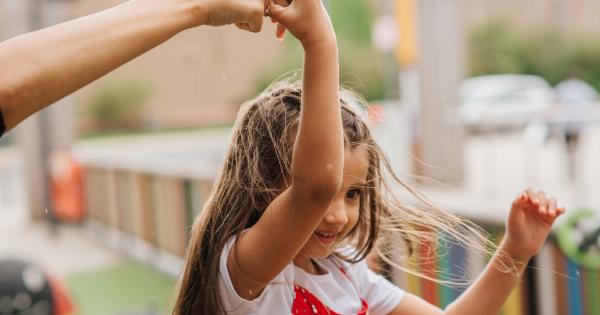Mother’s Day is a time for celebrating mothers and all that they do for their families. It’s a day to express love and gratitude for mothers who have nurtured their children and helped them become the adults they are today.
However, while it is a meaningful occasion for many, it can also pose a risk to young children.
Increased Pressure on Mothers
One of the risks associated with Mother’s Day is the increased pressure it places on mothers. While the sentiment behind the holiday is positive, the expectations that come with it are not always realistic.
Mothers may feel pressure to be the perfect mom and have everything under control, which can lead to them feeling overwhelmed, stressed, and even depressed. Children may also feel pressure to make the day special for their mothers, which can be a lot of pressure for little ones to handle.
Unrealistic Expectations for Children
Young children may not understand the true meaning of Mother’s Day and may feel pressure to do something special for their mother, even if it’s not within their abilities.
For example, a child may want to buy their mother an expensive gift, even if they don’t have the money to do so. This can lead to feelings of inadequacy and failure, which can harm a child’s self-esteem and confidence.
Conflict and Stress in Families
Another risk associated with Mother’s Day is conflict and stress in families. In some cases, families may have complex relationships that make Mother’s Day a difficult time.
For example, a child whose mother has passed away may feel sadness and grief on a day that is meant to celebrate mothers. Alternatively, a child may have a difficult relationship with their mother, which can lead to feelings of resentment and conflict.
Commercialization of Mother’s Day
The commercialization of Mother’s Day can also pose a risk to young children. Advertisements and media may portray Mother’s Day as a time for buying gifts and spending money, which can lead to children feeling pressured to do the same.
This can be particularly challenging for children from low-income families, who may not have the resources to buy expensive gifts.
Exclusion of Non-Traditional Families
Mother’s Day can also pose a risk to children from non-traditional families. For example, children who have same-sex parents or guardians may not have a mother figure in their lives.
This can lead to feelings of exclusion and can also reinforce gender stereotypes that can be harmful to children.
Childhood Development
The mother-child relationship is a critical factor in a child’s healthy development. However, putting too much emphasis on Mother’s Day can overlook the importance of this relationship on a day-to-day basis.
Children need to feel loved and valued every day of the year, not just on a designated day. By placing too much emphasis on Mother’s Day, we risk neglecting the needs of children and the importance of nurturing the mother-child relationship beyond this one-day event.
Alternatives to Celebrating Mother’s Day
While Mother’s Day can pose risks to young children, it doesn’t mean we should stop celebrating mothers altogether. Instead, we should strive to create alternative ways of celebrating that are meaningful and inclusive for all families.
One way to do this is to focus on the relationships between family members, rather than on the commercial aspects of the holiday. For example, families could spend quality time together by going for a walk or having a picnic.
Children could make homemade cards or crafts for their mothers, which can be a thoughtful and meaningful gesture.
Another alternative is to celebrate all caregivers, not just mothers. Many families have non-traditional structures, and it’s important to acknowledge and celebrate the contributions of all caregivers.
This can help children feel included and valued, regardless of their family structure.
Conclusion
Mother’s Day is a special occasion that celebrates the contributions of mothers, but it can also pose risks to young children.
Increased pressure on mothers, unrealistic expectations for children, conflict and stress in families, the commercialization of the holiday, exclusion of non-traditional families, and neglecting the mother-child relationship can all have negative impacts on children. However, by creating alternative ways of celebrating, we can make the holiday more inclusive and meaningful for all families.






























